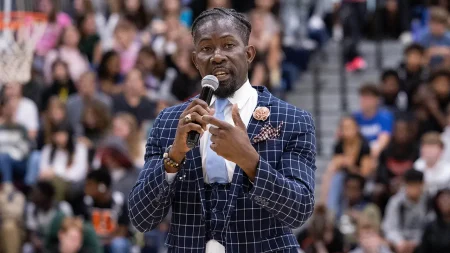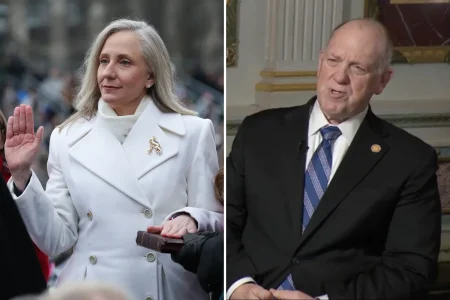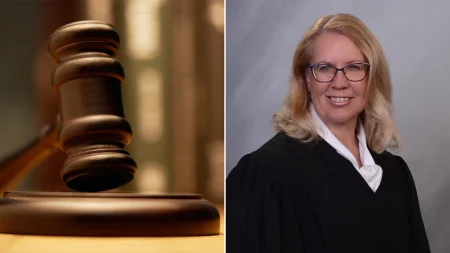TV Anchor Resigns After Suspension for Charlie Kirk Tribute
In a moving story of journalistic integrity and personal conviction, former WICS-ABC20 Springfield anchor Beni Rae Harmony has resigned from her position after facing what she describes as unfair punishment for honoring the late Charlie Kirk on air. While media personalities across the country have faced termination for mocking Kirk’s assassination, Harmony appears to be the first journalist penalized for paying tribute to him. The brief but heartfelt on-air segment, which lasted just over a minute, showcased her genuine grief and personal connection to the conservative commentator who had once served as her mentor early in her career.
Harmony announced her resignation on social media Monday, explaining that the station had suspended her following the Friday broadcast tribute. “Effective immediately, I have resigned from @WICS_ABC20 after being SUSPENDED for airing a non-partisan tribute to Charlie Kirk this past Friday,” she wrote on X. In her statement, Harmony emphasized that her departure was guided by fundamental values she refused to compromise: “I choose my faith and love of country, and always will.” She concluded her announcement with gratitude to her community and prayers for Kirk’s family, writing, “Thank you, Springfield. My home. My community. My people. God bless Charlie Kirk and his beautiful family, and God bless these United States of America.” Following her resignation, her profile was promptly removed from the station’s website.
The tribute that led to Harmony’s suspension was deeply personal. Fighting back tears during the broadcast, she revealed that the 31-year-old Kirk had been her first boss and had mentored her during her early media career. According to her LinkedIn profile, Harmony had worked as a producer and administrator for Turning Point USA, Kirk’s organization, in the Washington, DC-Baltimore area from August 2021 to February 2022. During her tribute, she shared one of Kirk’s favorite sayings about the importance of open conversation: “When conversations stop happening. When individuals become wordless, that’s when violence begins.” She concluded her emotional remembrance with simple but powerful words: “Thank you, CK, you changed my life.”
Harmony’s situation stands in stark contrast to the numerous cases of individuals facing consequences for mocking Kirk’s death. Across various sectors—from airline pilots to media pundits and educators—people have been terminated for making insensitive comments about the assassination. Transportation Secretary Sean Duffy reported that American Airlines pilots “who were caught celebrating” Kirk’s death were “immediately grounded and removed from service.” MSNBC analyst Matthew Dowd lost his position after suggesting on air that Kirk’s “awful words” had contributed to “awful actions.” Similarly, a university employee faced calls for termination after expressing “ZERO sympathy” for Kirk in a social media post, while an Office Depot employee was reportedly fired for refusing to print flyers honoring the conservative commentator.
The case highlights the charged atmosphere surrounding Kirk’s assassination and raises important questions about media freedoms, professional ethics, and the boundaries of personal expression in polarized times. Kirk, a prominent 31-year-old conservative podcaster and founder of Turning Point USA, was shot and killed while speaking at a university in Utah during an organizational tour. The tragedy has amplified existing tensions in American political discourse, with reactions ranging from genuine grief to callous celebration—both of which have had professional consequences for those expressing them.
What makes Harmony’s story particularly compelling is her willingness to sacrifice her professional position rather than compromise her values. While she described her tribute as “non-partisan,” the aftermath suggests that even expressions of basic human empathy have become politically charged in today’s media landscape. As news organizations and journalists navigate an increasingly divided public sphere, Harmony’s experience raises profound questions about where we draw the line between professional neutrality and authentic human connection. Her parting message—emphasizing faith, community, and patriotism—reflects the personal principles that guided her decision to step away from her anchor desk rather than remain silent about someone who had profoundly influenced her life and career.











